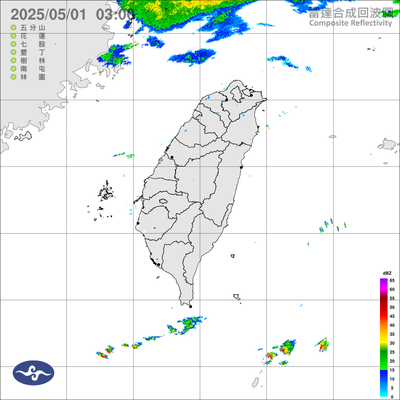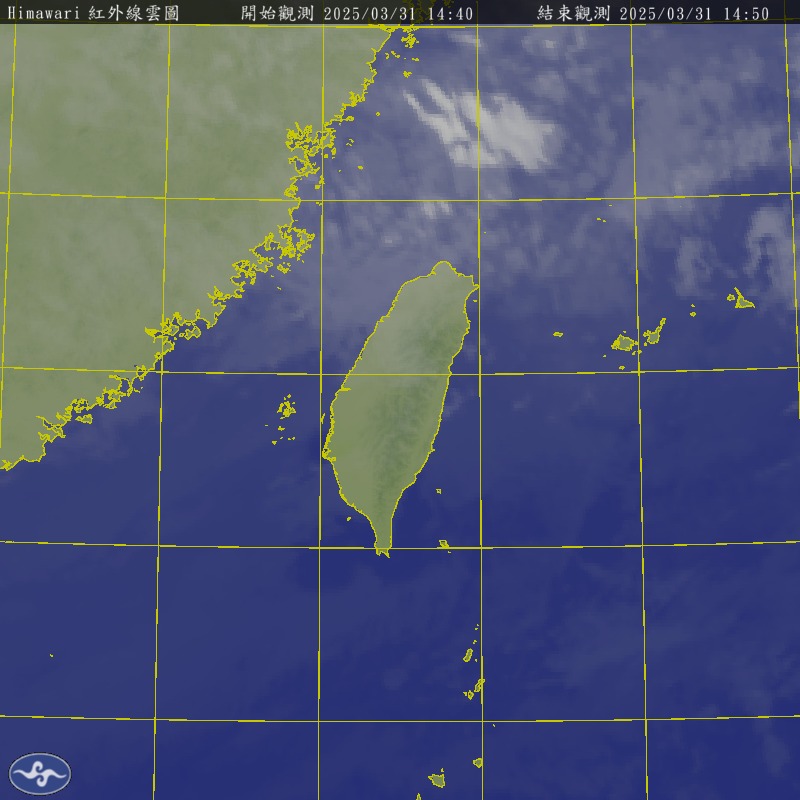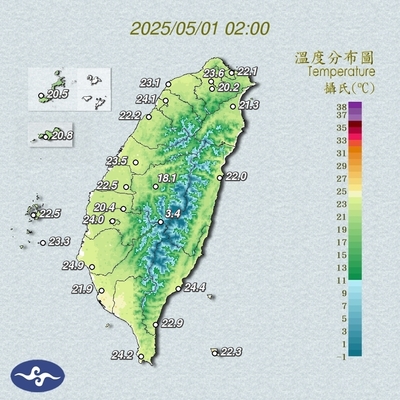| 經卷 | 章 | 節 | 和合本聖經 | 台語聖經 | 台羅聖經 | 字典 | 瀏覽數 |
|---|---|---|---|---|---|---|---|
| 01創世記 | 1 | 1 |
起初,上帝創造天地。 In the beginning God created the heavens and the earth.
|
起初上帝創造天地
|
起初(khí-chho͘) 上帝(siōng-tè) 創造(chhòng-chō) 天地(thiⁿ-tē)。
|
377 | |
| 01創世記 | 1 | 3 |
上帝說:要有光,就有了光。 And God said, Let there be light, and there was light.
|
上帝說要有光就有了光上帝說要有光就有了光
|
上帝(siōng-tè) 講(kóng)、 愛有(ài-ū) 光(kng)、 就有(chiū ū) 了(liáu) 光(kng)。
|
308 | |
| 01創世記 | 1 | 4 |
上帝看光是好的,就把光暗分開了。 God saw that the light was good, and he separated the light from the darkness.
|
上帝看光是好的就把光暗分開了
|
上帝(siōng-tè) 看(khòaⁿ) 光(kng) 是好的(sī hó ê)、 就把(chiū chiong) 光暗(kng àm) 分開了(Pun-khui--ah)。
|
298 | |
| 01創世記 | 1 | 5 |
上帝稱光為晝,稱暗為夜。有晚上,有早晨,這是頭一日。 God called the light day, and the darkness he called night. And there was evening, and there was morning--the first day.
|
上帝叫光為日叫暗為暝有暗時有日時這是頭一日上帝叫光為日叫暗為暝有暗時有日時這是頭一日
|
上帝(siōng-tè) 叫(kiò) 光(kng) 為(ûi) 日(Ji̍t)、 叫(kiò) 暗(àm) 為暝(û Mî), 有(ū) 暗時(àm-sî), 有(ū) 日時(Ji̍t-sî)、 這是(che-sī) 頭一日(thâu chi̍t-ji̍t)。
|
291 | |
| 01創世記 | 1 | 6 |
上帝說:諸水之間要有空氣,將水分為上下。 And God said, Let there be an expanse between the waters to separate water from water.
|
上帝說這些水之間要有空氣將水分為上下
|
上帝(siōng-tè) 講(kóng)、 這些水(Chiah ê chúi) 之間(chi-kan) 要(iau) 有(ū) 空氣(khong-khì)、 將(chiong) 水(chúi) 分為(hun-ûi) 上下(siōng hā)。
|
326 | |
| 01創世記 | 1 | 7 |
上帝就造出空氣,將空氣以下的水、空氣以上的水分開了。事就這樣成了。 So God made the expanse and separated the water under the expanse from the water above it. And it was so.
|
上帝就造出空氣將空氣以下的水空氣以上的水分開了事就按呢這樣成了
|
上帝(siōng-tè) 就(chiū) 造出(chō-chhut) 空氣(khong-khì)、 將(chiong) 空氣(khong-khì) 以下(í-hā) 的水(ê chúi)、 空氣(khong-khì) 以上(í-siōng) 的水(ê chúi) 分開了(Pun-khui--ah), 事(sū) 就(chiū) 按呢(án-ne) 成了(sêng liáu);
|
325 | |
| 01創世記 | 1 | 8 |
上帝稱空氣為天。有晚上,有早晨,是第二日。 God called the expanse sky. And there was evening, and there was morning--the second day.
|
上帝稱空氣為天有晚上有早晨是第二日
|
上帝(siōng-tè) 稱(chheng) 空氣(khong-khì) 為天(ûi Thiⁿ), 有晚上(ū àm-sî), 有早晨(ū Ji̍t-sî), 是(sī) 第二日(tē-jī ji̍t)。
|
279 | |
| 01創世記 | 1 | 9 |
上帝說:天下的水要聚在一處,使旱地露出來。事就這樣成了。 And God said, Let the water under the sky be gathered to one place, and let dry ground appear. And it was so.
|
上帝說天下的水要聚集在一處一個所在使乾地走出來事就這樣成了
|
上帝(siōng-tè) 說、 天下的水(thian-hā-ē chiah) 要聚集(ê-chúi tio̍h) 在一處(chi̍t-ê só͘-chāi)、 使(hō) 乾地(ta-tē) 走出來(cháu-chhut-lâi) . 事(sū) 就(chiū) 這 樣 成了(sêng liáu)。
|
318 | |
| 01創世記 | 1 | 10 |
上帝稱旱地為地,稱水的聚處為海。上帝看著是好的。 God called the dry ground land, and the gathered waters he called seas. And God saw that it was good.
|
上帝稱叫乾地為地稱叫水聚處為海上帝看著是好的
|
上帝(siōng-tè) 叫(kiò) 乾地(ta-tē) 為(ûi) 地(tē)、 叫(kiò) 水(chúi) 聚處(Tsū-tshù) 為(ûi) 海(Há) . 上帝(siōng-tè) 看著(Khuànn tio̍h) 是好的(sī hó ê)。
|
288 | |
| 01創世記 | 1 | 11 |
上帝說:地要發生青草和結種子的菜蔬,並結果子的樹木,各從其類,果子都包著核。事就這樣成了。 Then God said, Let the land produce vegetation: seed-bearing plants and trees on the land that bear fruit with seed in it, according to their various kinds. And it was so.
|
上帝說地要發出青草和結籽的菜蔬並結果子的樹木各從其類果子都包著子事就這樣完成
|
上帝(siōng-tè) 說(kóng) 地(tē) 要(iau) 發出(Huat-tshut) 青草(Tshinn-tsháu) 和(Kap) 結籽(kiat-chíê) 的(ê) 菜蔬(tshài-se) 並結(Pīng kat) 果子(ké-chí) 的(ê) 樹木(Tshiū-bo̍k) 各從其類(kok-chêng-kî-lūi) 果子(ké-chí) 都包著(Lóng pau-tio̍h) 子(chí) 事(sū) 就(chiū) 這樣(án-ne) 完成(Uân-sîng)
|
306 |
線上使用者
2025/05/29開始計數器
| 今天: | |
| 昨天: | |
| 總計: |
教會MIDI卡拉OK新增資料
台語羅馬字典
台語聖經最近新增
教會MIDI卡拉OK流量最多的歌
會員登入
荒漠甘泉五合一
「我們……就當放下各樣的重擔,脫去容易纏累我們的罪,存心忍耐,奔那擺在我們前頭的路程。」希伯來書十二章1節
有許多重擔它們的本身並不是罪,但是會叫基督人分心,變成他們長進的障礙。其中最有害的是灰心。灰心實在是一個曳我們往下的重擔。
以色列人不得進入應許之地的原因就是發怨言;民數記十四章29、30節明明告訴我們:「凡……向我發怨言的,必不得進我起誓應許叫你們住的那地。」一點點鳴不平的慾望,一點點不知足的慾望,常會造成叛逆大罪。所以我們永遠不當讓我們自己有一點點自由來疑惑神在凡事上對我們的慈愛和信實。
我們怎樣抵擋別的罪,也當照樣擋疑惑;當我們堅拒疑惑的時候,聖靈會來幫助我們,賜給我們得勝的信心。
我們頂容易流入疑惑,懷抱不平,猜想神已經棄絕我們,我們的盼望行將破產…讓我們拒絕這一切思想,因為它們的目的是要叫我們失望。讓我們拒絕一切叫我們不快樂的思想。我們不能感覺喜樂的時候,讓我們「以為……喜樂」(雅一2),憑信心來喜樂;這樣,神必叫我們的「以為」變成事實。
─選
魔鬼有兩個最大的詭計。一個就是叫我們失望;一個就是叫我疑惑—─斬斷我們與父神中間信心連索。當心啊!不要被他的詭計欺騙了。
喜樂!一個喜樂的靈能使我們的心合調,使撒但不敢前來彈奏─—因為心絃太熱的時候,充滿了屬天的電力的時候,會使撒但的手指燙痛。
應當盡力遠避憂鬱,好像遠避撒但一樣;但是多少時候,我們在大道上,遇見了它,它便釘住我們,直釘得我們的心變色。
憂鬱會叫凡事變色;它會使一切東西變得「不可愛」;它會使未來的希望淪入黑暗;它會剝奪人們一切的熱望,鎖住人們一切的能力,給人一個精神上的麻痺。
一個經歷很深的信徒告訴我們說:「喜樂能使工作順利;當我們戴上喜樂的翅膀時,我們的工作也會作得迅速了;憂鬱是剪去這種翅膀的;換言之,憂鬱能挪去我們工作的車輪,使我們車輪像埃及人的車輪一樣,脫落難行。」
October 16
"Let us lay aside every weight, and the sin which doth so easily beset us, and let us run with patience the race that is set before us." (Heb. 12:1)
THERE are weights which are not sins in themselves, but which become distractions and stumbling blocks in our Christian progress. One of the worst of these is despondency. The heavy heart is indeed a weight that will surely drag us down in our holiness and usefulness.
The failure of Israel to enter the land of promise began in murmuring, or, as the text in Numbers literally puts it, "as it were murmured." Just a faint desire to complain and be discontented. This led on until it blossomed and ripened into rebellion and ruin. Let us give ourselves no liberty ever to doubt God or His love and faithfulness to us in everything and forever.
We can set our will against doubt just as we do against any other sin; and as we stand firm and refuse to doubt, the Holy Spirit will come to our aid and give us the faith of God and crown us with victory.
It is very easy to fall into the habit of doubting, fretting, and wondering if God has forsaken us and if after all our hopes are to end in failure. Let us refuse to be discouraged. Let us refuse to be unhappy. Let us "count it all joy' when we cannot feel one emotion of happiness. Let us rejoice by faith, by resolution, by reckoning, and we shall surely find that God will make the reckoning real.
-Selected.
The devil has two master tricks. One is to get us discouraged; then for a time at least we can be of no service to others, and so are defeated. The other is to make us doubt, thus breaking the faith link by which we are bound to our Father. Look out! Do not be tricked either way.
-G. E. M.
Gladness! I like to cultivate the spirit of gladness! It puts the soul so in tune again, and keeps it in tune, so that Satan is shy of touching it--the chords of the soul become too warm, or too full of heavenly electricity , for his infernal fingers, and he goes off somewhere else! Satan is always very shy of meddling with me when my heart is full of gladness and joy in the Holy Ghost.
My plan is to shun the spirit of sadness as I would Satan; but, alas! I am not always successful. Like the devil himself it meets me on the highway of usefulness, looks me so fully in my face, till my poor soul changes color!
Sadness discolors everything; it leaves all objects charmless; it involves future prospects in darkness; it deprives the soul of all its aspirations, enchains all its powers, and produces a mental paralysis!
An old believer remarked, that cheerfulness in religion makes all its services come off with delight; and that we are never carried forward so swiftly in the ways of duty as when borne on the wings of delight; adding, that Melancholy clips such wings; or, to alter the figure, takes off our chariot wheels in duty, and makes them, like those of the Egyptians, drag heavily.
很多人問勝過自己的方法為何是如此的簡易而直接,而人間的道理幾乎都要花費很長時間去練習,才會具備四種德行中任何的一種?我已經講過忍耐、溫柔、謙卑,是治死老我直接的方法,因為你可藉著回轉和信心,輕易地具備這些德行,就好像稅吏和罪人藉著回轉向著耶穌,就得到幫助和救恩一樣。原因是你們或其他的人用人為的規條和方法,這是一無功效的,不如以單純的信心,像他們一樣直接尋求基督的幫助。
「凡勞苦擔重擔的可以到我這裏來,我就使你們得安息。」這是得平安和安慰何等簡潔的方法,當你從老我和罪惡的權勢中得到釋放,而且得到救贖的能力和基督的美德,那你的規條和方法又成了什麼?當我們設身處地想到耶穌所完成的是何等完全的!當祂完成贖罪大功即升到天上,得了天上一切權柄,成了我們的救主,以在世為人的經驗直接幫助人。
「你說這不是問題,當我憑信心將自己完全獻上,就會自然有相當好的美德,就是其他就近祂的一樣,我傚法祂的門徒以基督裏完全屬祂的信心轉向忍耐、溫柔、謙卑和與神和好的美德上。」
「當我鼓勵你以信心獻上自己並期望這些美德,以同樣的信心和期望轉向真神羔羊,難道單憑神的羔羊就能完全有忍耐、溫柔、謙卑,與神和好;同時,難道每個真實的期望和內心的傾向都受這四種德性管制,你可直接向神要求,在祂面前敬拜,憑信向祂領受完全。」
我太多時候認為信心就是和主在十字架上所完成的工作有關係,但其意義比這更加豐富,我們可因此接受救恩,有基督的心志和聖靈的思念。信心可親自體驗本來在基督裏的恩典和德性,我們也因此有基督的心志。
「所以你們當求莊稼的主,打發工人出去,收祂的莊稼。」馬太福音九章38節
宣教師的問題,是在神手裡,而那鎖鑰是祈禱,不是工作:我們平常視為好的工作,也許也有叫思想不集中神的傾向。宣教師問題的鎖鑰,不是理智,不是醫藥,也不是文化或教育,甚至也不是宣佈福音,乃是祈禱。「所以你們當求莊稼的主。」自然,祈禱似乎迂闊,不切實際,若從理智去觀看,也許是愚笨的。
在耶穌基督的目光裡,沒有國家,只有世界。我們之中有多少人祈禱,不為私人,專為耶穌基督呢?他所要割的莊稼,是罪惡和痛苦。我們要求工人去收割的,也是罪惡和痛苦。我們周圍的人,都是熟了的莊稼,但我們為當前的工作所阻,沒有收割一個。在這些過於耗費氣力的活動上,徒然花費我們主的時間。假若你父親的生命,你兄弟的生命,感受了危險,你還是否像個工人收割耶穌基督的莊稼呢?恐怕你要說「我有特殊的工作要做哩!」基督徒沒有特殊的工作要做。一個基督徒蒙召,歸於耶穌基督,不是一個高於他主人的人,他也不能指定他所要做的。我們的主不召人做特別的工作,祂只召人歸祂自己。「所以你們當求莊稼的主,」祂就製造環境,命你們出去。
「你雖然被撇棄被厭惡,甚至無人經過,我卻使你變為永遠的榮華,成為累代的喜樂。」以賽亞書六十章15節
神很喜歡把失喪之人的最糟經歷,變成祂救贖的愛和力量的最有意義紀念品。祂喜歡祝福撒但所仇恨的受害者及面對惡勢力露出恐懼之情的人,祂能藉著這些人來解釋祂的恩惠,並聖靈的創造力。
神喜歡把我們生命中最壞的、最無法忍受的、最與神為仇的事,完全地扭轉過來,使我們與過去的老我截然不同。
往往最甜美的靈乃是由最猛烈、任性的人轉換出來的;有最大信心的人,則是從懷疑、充滿恐懼的曠野中造就成的;滿有神愛心的人,常是從鐵石心腸、懷恨很深、自私自利的光景中走出來的。
神的恩典能使最不能與人相處的人,以及最惡劣的環境得著改變。祂能化咒詛為祝福,並向世世代代的人及天使彰顯「……罪在那裡顯多,恩典就更顯多了」(羅五20)這個真理。


